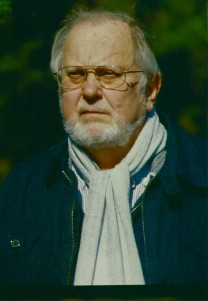Dr. Hans-Joachim Koloss was born in Königsberg, East Prussia, in 1938. His father was an estate manager. In 1945 the family had to leave its
homeland and eventually settled near Oldenburg in the northwest of Germany. In 1959 Koloss finished high school in Delmenhorst near Bremen.
Due to his growing interest in sociocultural matters Koloss began to study anthropology, prehistory and geography at Göttingen University, where he also attended courses in philosophy. At the Institute for Cultural and Social Anthropology Günther Spannaus, Hans Plischke and Erhard Schlesier were, among others, his teachers. During his studies Koloss acquired a broad survey of anthropological and historical facts
and theories. West Africa became his special regional field of research. In 1967 he graduated and became an assistant in Göttingen for one year.
In 1968 he got a post at the Institute for the Scientific Film in Göttingen. His major tasks included documenting and indexing the archives of the institute, a task that gave him insights into the methods of anthropological film making. In 1970 Koloss was offered an assistant position at the Reiss-Museum in Mannheim, which was the beginning of his career as a museum anthropologist. In 1973 he became head of the Department for Africa at the renowned Linden-Museum in Stuttgart, and in 1985 he took up the same position at the Ethnological Museum in Berlin, where he retired in 2001.
In Stuttgart as well as in Berlin Koloss organized a lot of exhibitions on African culture and art, nearly all of them accompanied by catalogues. He took a major interest in African art and contributed to the development of a special theory of African art ("Africa. Art and culture". Munich (2002)).
The core of his research work was a long-standing series of ethnological fieldwork in Oku (Cameroon), which commenced in 1975 and came to a close after 15 research trips with the publication of the monograph "World-View and Society in Oku (Cameroon)" in 2000. After his retirement Koloss went on a total of four trips to Kembong in the Cross River Region in the years 2004 and 2005. The two research projects which Koloss devoted to two societies in Cameroon for more than three decades - one a kingdom, the other an egalitarian society - were finished with his work "Traditional Institutions in Kembong (Cameroon)" (2008). Another paper entitled "Cameroon. Thoughts and Memories" is forthcoming.
Short Portrait: Hans-Joachim Koloss

Hans-Joachim Koloss
 further information
further information

